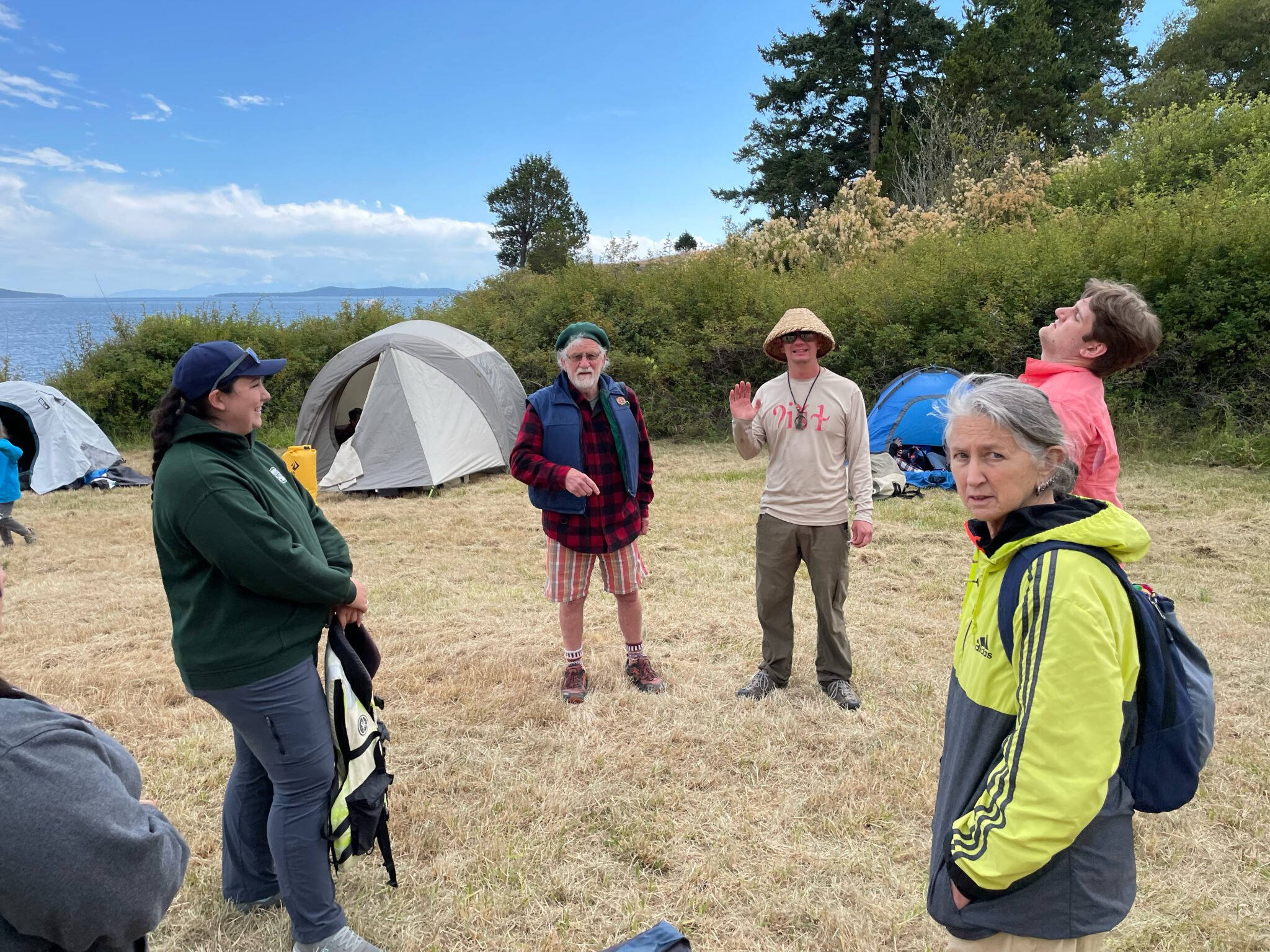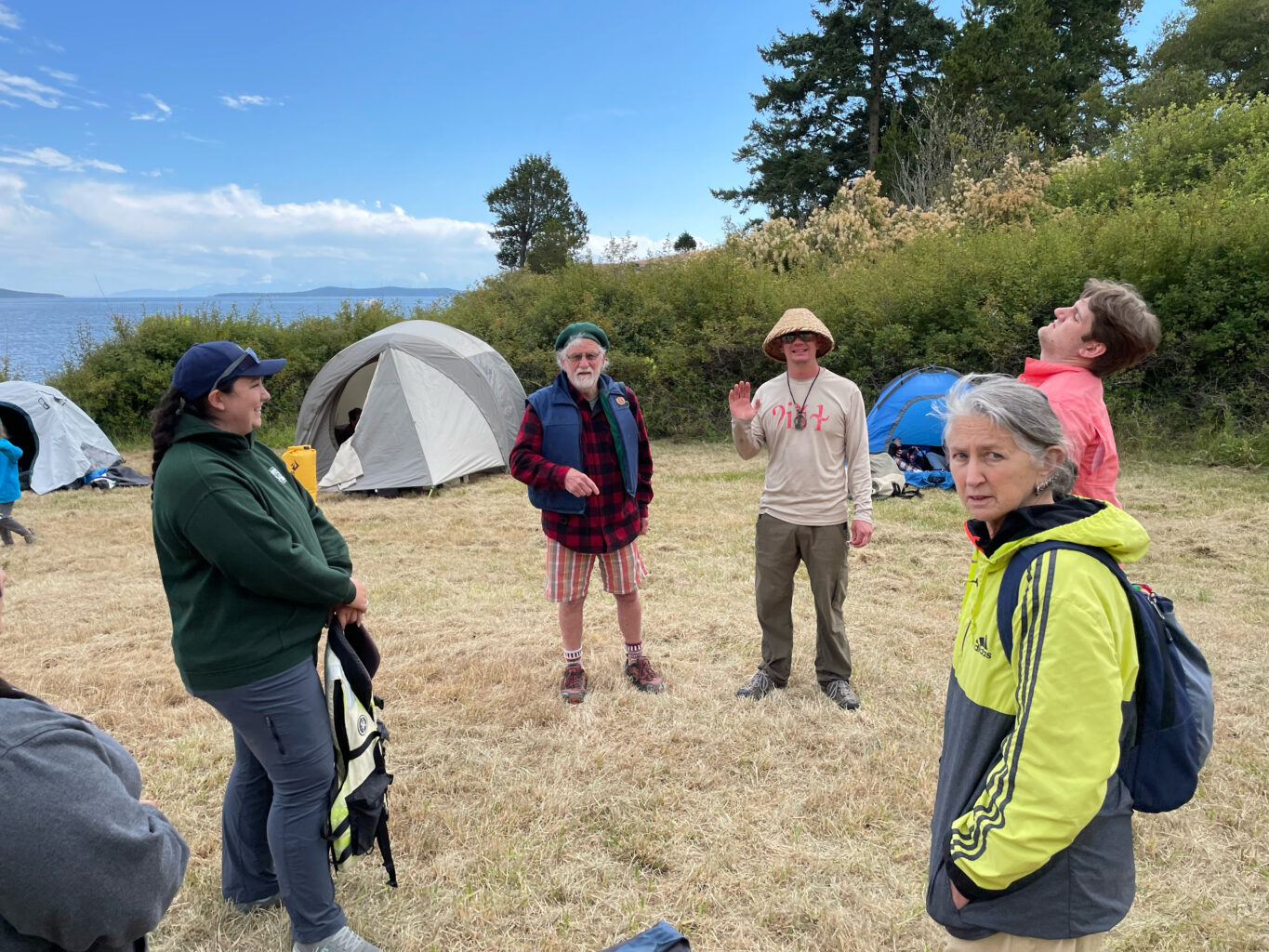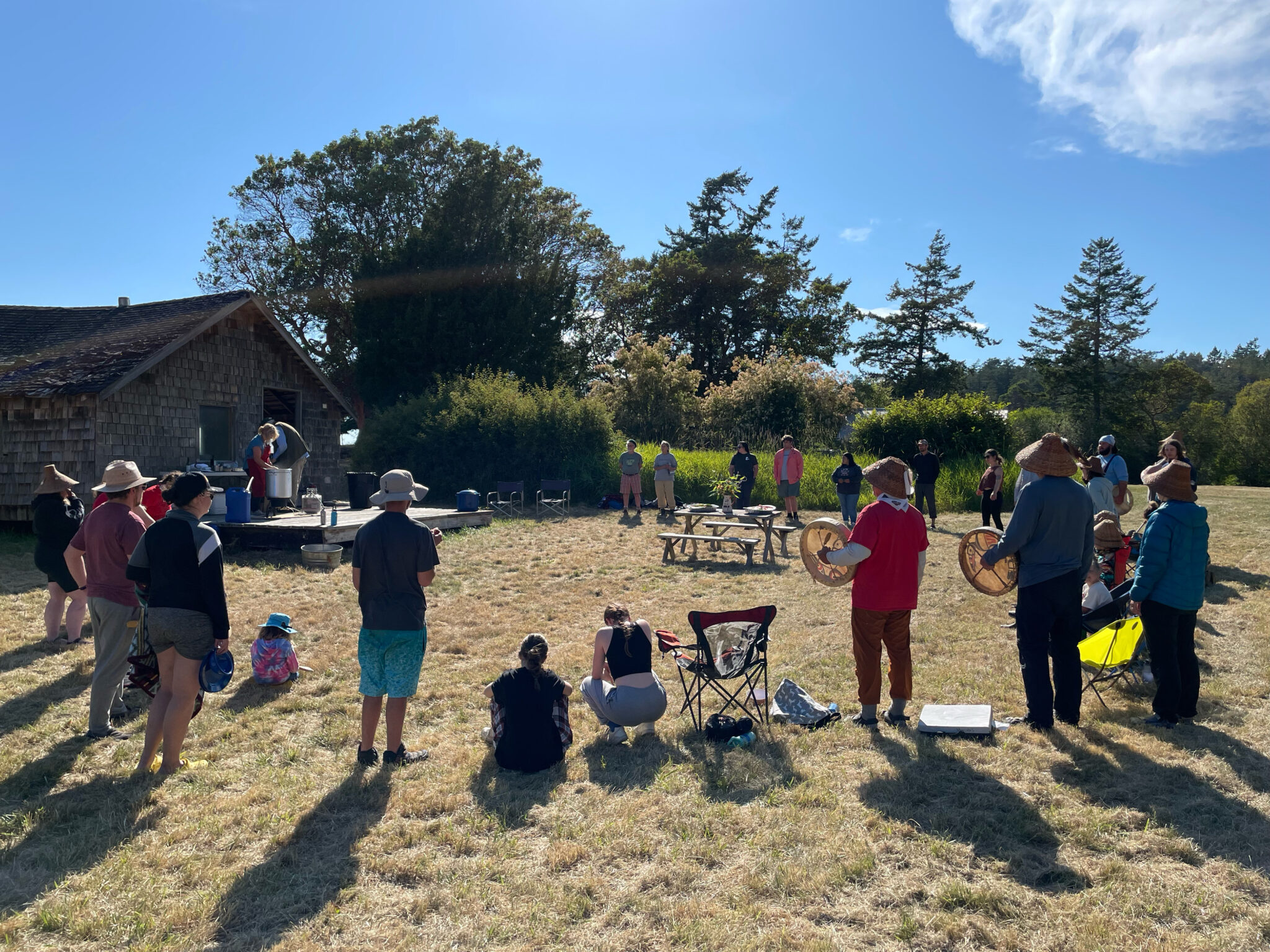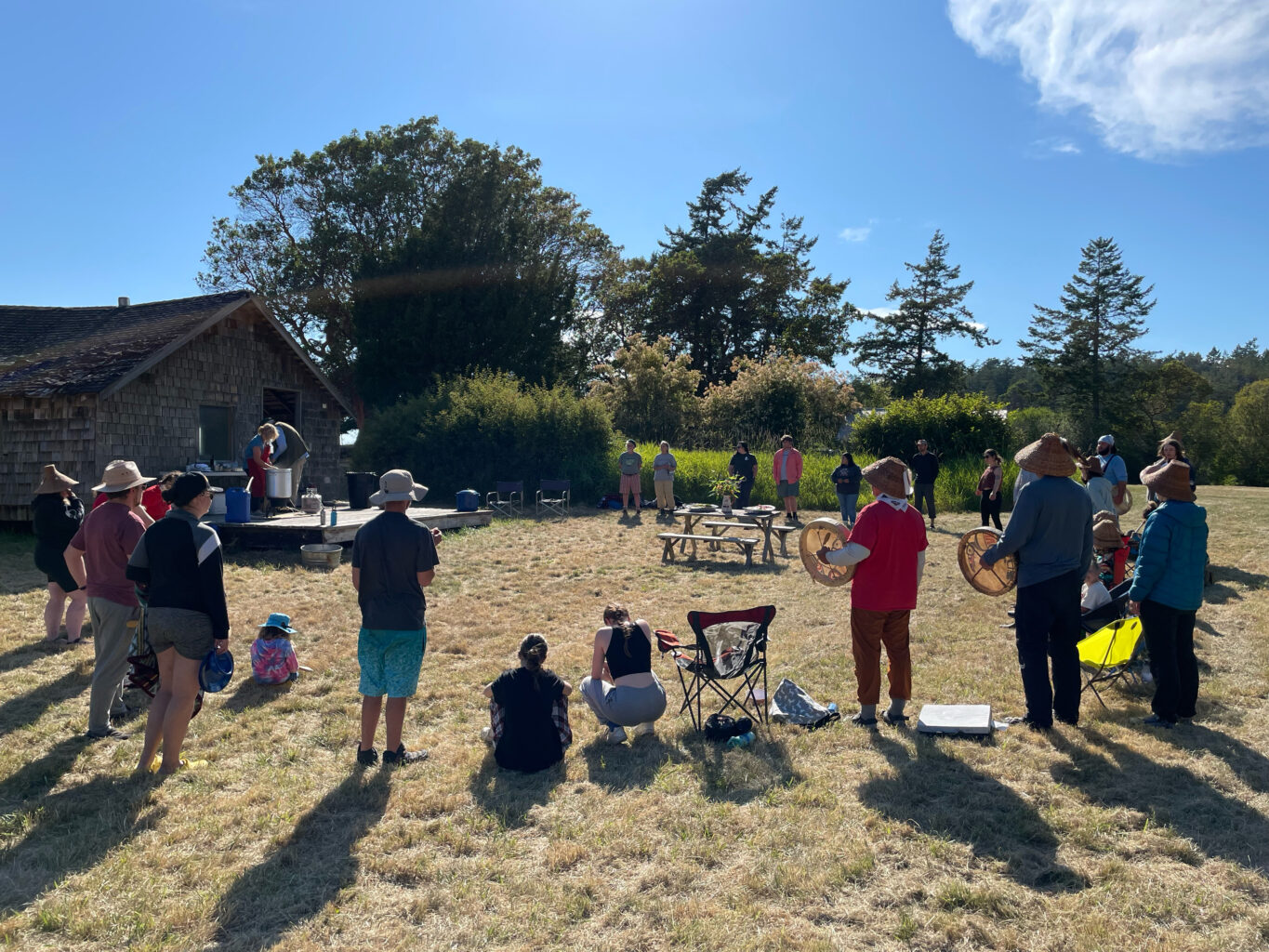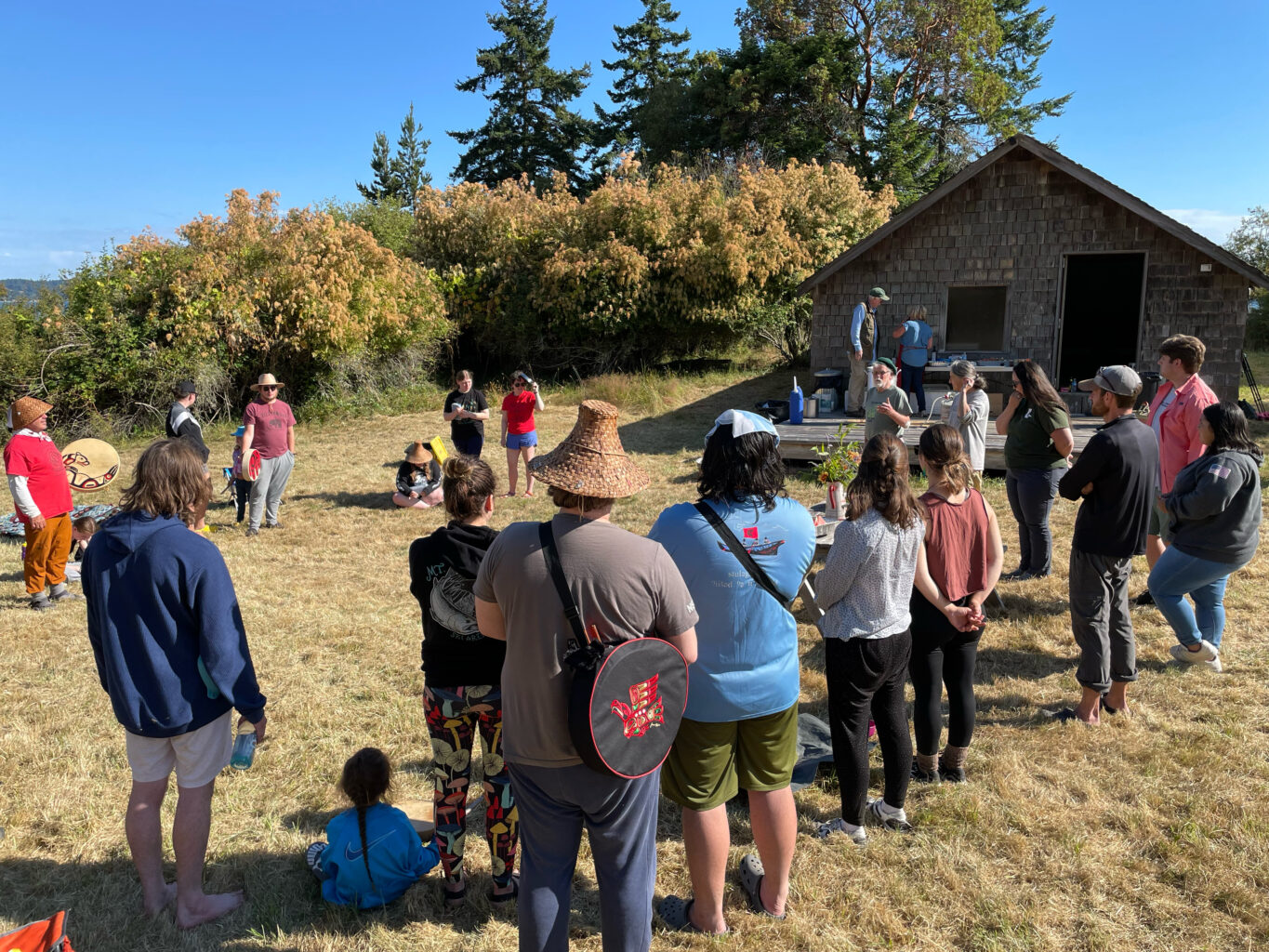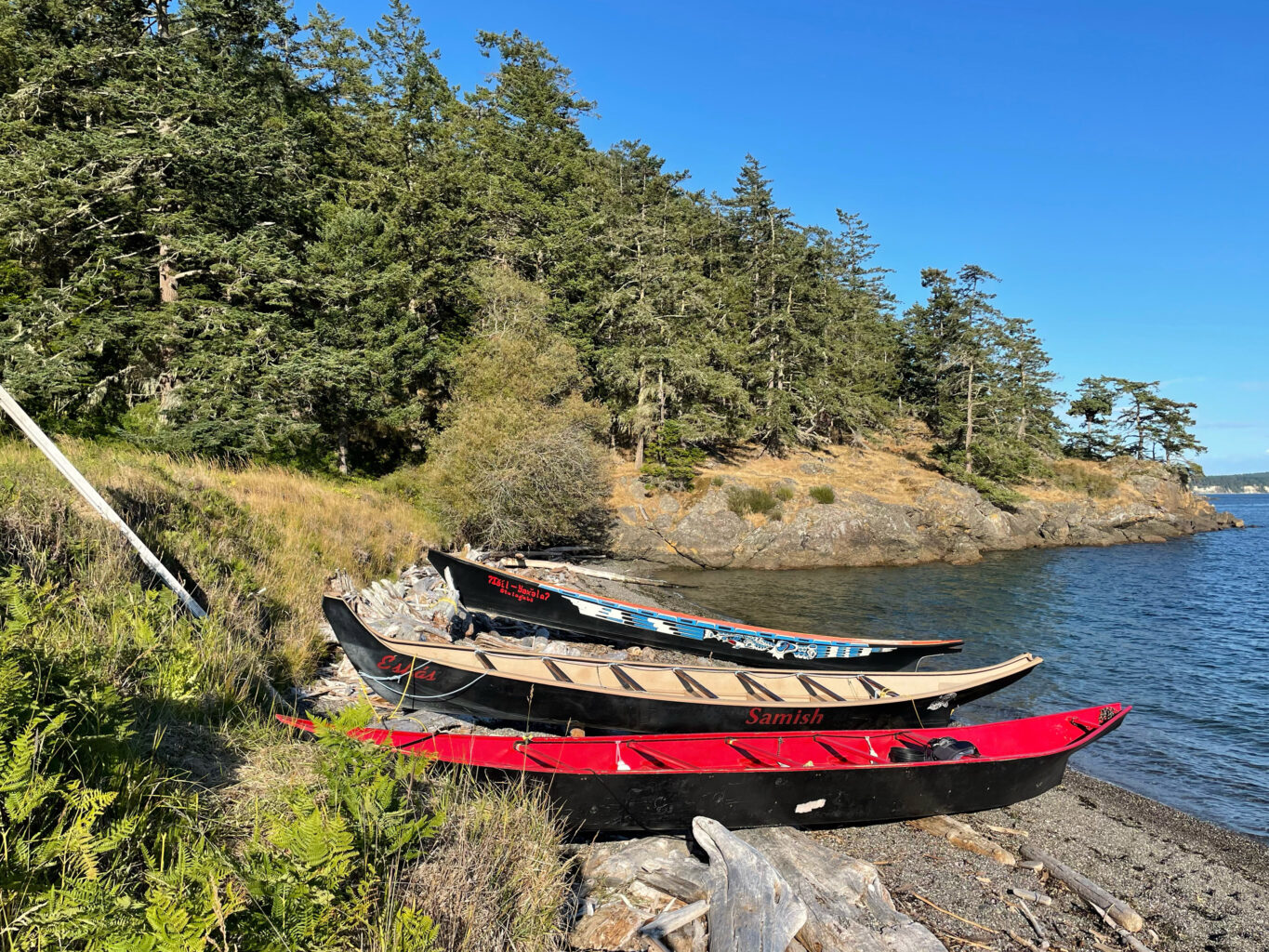Working with indigenous islanders on conservation is a core part of Seacology’s mission, but we rarely have a chance to do so in our own backyard. This seagrass restoration project, however, is in cooperation with indigenous people in the Puget Sound region of the Salish Sea, the ancestral home of the Northern Straits Coast Salish people. Eelgrass has played an important role in their livelihoods and culture.
Native eelgrass (Zostera marina) is essential for resilient coastal ecosystems in the Pacific Northwest. Fish, waterfowl, and invertebrates depend on it for habitat, and the meadows it forms improve water quality and reduce erosion. Eelgrass and other seagrasses are also key to planetary health, because seagrass meadows are powerful carbon sinks.
Over the past two decades, however, populations of these flowering marine plants have declined throughout the San Juan Archipelago. Myriad human activities can affect seagrass, but scientists aren’t sure what has caused this decline.
This eelgrass restoration will involve indigenous youth with ancestral ties to the San Juan Archipelago in replanting native eelgrass in Shallow Bay at Sucia Island. The students will work alongside experts from the University of Washington’s Friday Harbor Laboratories, learning how to collect, store, and plant seeds. Seeds must be collected in the summer and kept in culture until the next spring. A Seacology grant will cover the expense of collecting and storing seeds, as well as planting.
The foundation for this partnership has already been laid. In June, staff from the Friday Harbor Labs and the directors of the Coast Salish Youth Stewardships Corps came together to see the eelgrass culture center at FHL, plant eelgrass seeds at San Juan Island, and discuss the Sucia Island project.
In addition to habitat restoration, this project will produce another benefit: Native students will become eelgrass ambassadors, spreading the word about the current, not just historical, place eelgrass holds in native culture and livelihoods.


